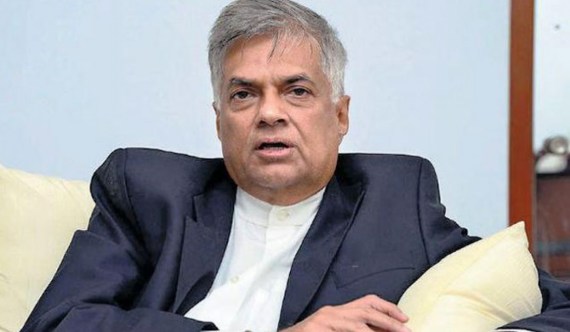By P.K.Balachandran
Colombo, April 9 (newsin.asia): The leader of the opposition United National Party (UNP) and former Sri Lankan Prime Minister, Ranil Wickremesinghe, pointed out in parliament on Friday, one of the critical flaws in the Sri Lankan political system, which may have caused of the current economic crisis.
Wickremesinghe said that over the years, parliament has lost control over public finance, its constitutional prerogative, with the result, people’s representatives in parliament have had little or no say in how money is collected and spent. He further said that, given the current economic crisis, it is time, parliament retrieved its legitimate power over public finance.
The House should take full charge of public finance as per Art 148 of the constitution. The cabinet, which is the Executive, has not been handling it properly, he argued. The cabinet has failed to put the finances of the country in order, which is why there is an accute economic crisis in Sri Lanka, he reasoned.
Asked why Wickremesinghe should make this demand when, according to the constitution, public finance is the exclusive preserve of parliament, Tamil National Alliance MP M.A.Sumanthiran said that over the years the Executive has eroded the role of parliament by various means and subterfuges.
According to him, this has been one of the undesirable by-products of the Executive Presidential system which diluted the powers of parliament and stacked humongous powers in the hands of the Executive President. Sri Lanka opted for the Executive Presidential system abandoning the parliamentary system in 1978.
While it is accepted that parliamentary committees have to be headed by opposition MPs, there have been cases in which ruling party MPs have headed committees.”Sarath Amunugama was a minister when he headed the Committee on Public Enterprises,” Sumanthiran recalled.
And there was a time when a President was also Finance Minister (President Chandrika Kumaratunga held the Finance Portfolio). The principle of separation of powers, essential for democratic functioning, was thus violated in spirit if not in letter. At that time, the President could take up any ministry, but this is barred now.
The constitution, on the other hand, has very clearly stated that public finance is the exclusive preserve of parliament, (even under the Executive Presidential system with a directly elected President). Art 148 is explicit on this matter using the term “total control”.
Art 149 says that all revenue will go into the Consolidated Fund (CF) and parliamentary sanction is needed for the use of the CF. Art 150 says that parliament will have to pass specific resolutions for the use of the funds. The purpose of drawing from the fund has to be specified and voted upon. If parliament had been dissolved, the President can handle public finance, but only for three months.
Even the use of the Contingency Fund for emergency use has to be authorized by parliament as soon as possible.
The constitution envisages a critical role for parliament in the making and authorization of the country’s annual budget. If the budget is defeated in parliament, the cabinet has to resign. This is the reason why the process of making the budget is long and intricate with many checks en route.
After the First Reading of the budget proposals, any citizen can go to court challenging the constitutionality of any provision, within seven days. The Second Reading the Appropriation bill is the budget speech of the Finance Minister, a detailed present presentation. The bill is then voted on. Once passed, the Appropriation bill is referred to a Committee of the Whole House. This is the Committee Stage or the Third Reading of the bill. This can last for a maximum of 22 days. All heads of expenditure are discussed and amendments suggested. Then all heads are passed together with or without amendments.
If the Appropriation bill is defeated in parliament, the cabinet will have resign. The President would then begin to handle the finances but only till the next government is formed.
Indeed, the procedure is looks cast iron, but in practice, there has been a tendency in all governments to find ways to circumvent parliament. Presidents have circumvented cabinets and cabinets and powerful individual ministers have circumvented parliament in a bid to monopolize power or exercise it arbitrarily. This goes on until things go horribly wrong as it has happened under President Gotabaya Rajapaksa.
END





























































